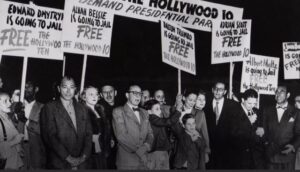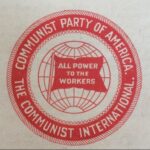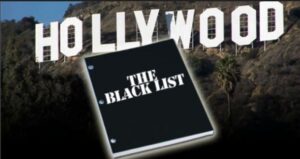 In a very different time in America, being a communist was not accepted, and it really shouldn’t be accepted now, but that is not the opinion of every person in the United States today. Nevertheless, on October 20, 1947, saw the beginning of the notorious Red Scare. At that time, a Congressional committee began investigating the Communist influence that was, or at least was suspected of infiltrating one of the world’s richest and most glamorous communities…Hollywood, California.
In a very different time in America, being a communist was not accepted, and it really shouldn’t be accepted now, but that is not the opinion of every person in the United States today. Nevertheless, on October 20, 1947, saw the beginning of the notorious Red Scare. At that time, a Congressional committee began investigating the Communist influence that was, or at least was suspected of infiltrating one of the world’s richest and most glamorous communities…Hollywood, California.
One of the greatest fears after World War II, was that the Cold War began to heat up between the United States and the communist-controlled Soviet Union. Conservatives in Washington were working hard to remove any communists in government. Then, they set their sights on those people who were alleged “Reds” in the liberal movie industry. During the investigation that began in October 1947, the House Un-American Activities Committee (HUAC) questioned a number of prominent people. During the interviews, the committee asked point-blank, “Are you or have you ever been a member of the Communist Party?”
It might have been fear or maybe a sense of patriotism, but some witnesses, including director Elia Kazan,  actors Gary Cooper and Robert Taylor, and studio honchos Walt Disney and Jack Warner, all gave the committee names of colleagues they had suspected of being communists. That began a more grueling interrogation of a small group known as the “Hollywood Ten.” All of the “Hollywood Ten” resisted the accusations, complaining that the hearings were illegal and violated their First Amendment rights. The 10 were Alvah Bessie, Herbert Biberman, Lester Cole, Edward Dmytryk, Ring Lardner Jr, John Howard Lawson, Albert Maltz, Samuel Ornitz, Adrian Scott, and Dalton Trumbo. While they weren’t convicted of being communist, they were all convicted of obstructing the investigation and each served jail terms.
actors Gary Cooper and Robert Taylor, and studio honchos Walt Disney and Jack Warner, all gave the committee names of colleagues they had suspected of being communists. That began a more grueling interrogation of a small group known as the “Hollywood Ten.” All of the “Hollywood Ten” resisted the accusations, complaining that the hearings were illegal and violated their First Amendment rights. The 10 were Alvah Bessie, Herbert Biberman, Lester Cole, Edward Dmytryk, Ring Lardner Jr, John Howard Lawson, Albert Maltz, Samuel Ornitz, Adrian Scott, and Dalton Trumbo. While they weren’t convicted of being communist, they were all convicted of obstructing the investigation and each served jail terms.
The Hollywood establishment, after being pressured by Congress, started a blacklist policy. The blacklist involved the practice of denying employment to entertainment industry professionals believed to be or to have been Communists or sympathizers. Actors, screenwriters, directors, musicians, and other American entertainment professionals were barred from work by the studios. This was usually done on the basis of their membership in, or alleged membership in, or sympathy with the Communist Party USA, or their refusal to assist Congressional investigations into party activities. The policy brought about the banning the work of about 325 screenwriters, actors, and directors who had not been cleared by the committee.
 Those blacklisted included composer Aaron Copland, writers Dashiell Hammett, Lillian Hellman, and Dorothy Parker, playwright Arthur Miller, and actor and filmmaker Orson Welles. The policy wasn’t always strictly enforced, and even during the period of its strictest enforcement, from the late 1940s through to the late 1950s. The blacklist was almost never made explicit. It was rather the result of numerous individual decisions by the studios and was not the result of official legal action. Nevertheless, the blacklist quickly and directly damaged or even ended the careers and income of scores of individuals working in the film industry.
Those blacklisted included composer Aaron Copland, writers Dashiell Hammett, Lillian Hellman, and Dorothy Parker, playwright Arthur Miller, and actor and filmmaker Orson Welles. The policy wasn’t always strictly enforced, and even during the period of its strictest enforcement, from the late 1940s through to the late 1950s. The blacklist was almost never made explicit. It was rather the result of numerous individual decisions by the studios and was not the result of official legal action. Nevertheless, the blacklist quickly and directly damaged or even ended the careers and income of scores of individuals working in the film industry.


Leave a Reply